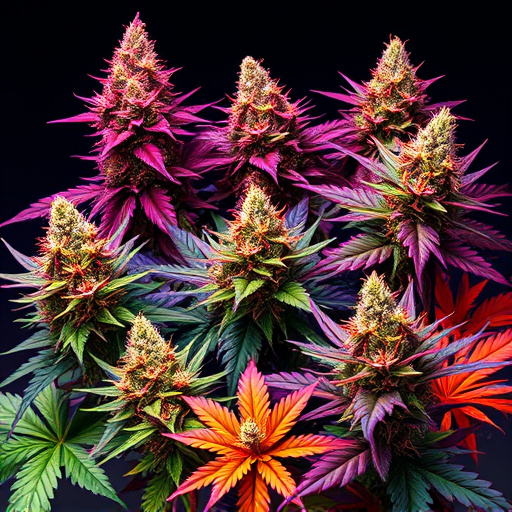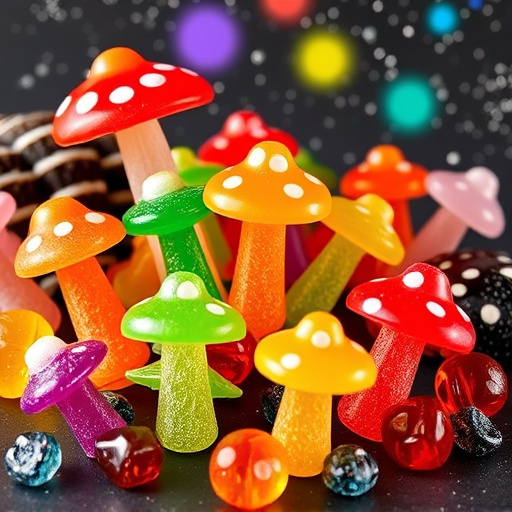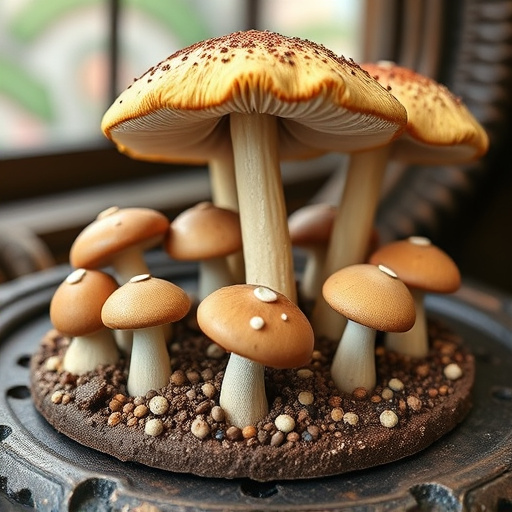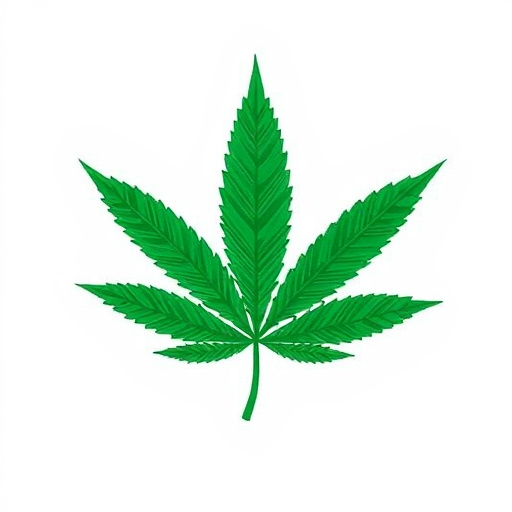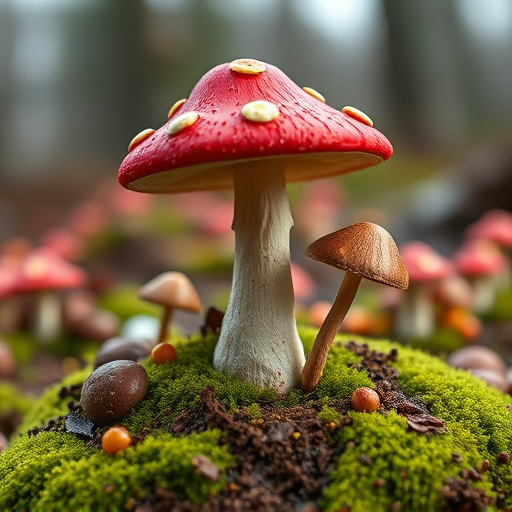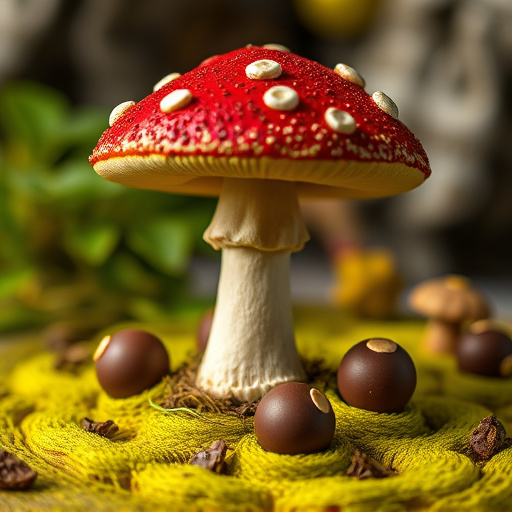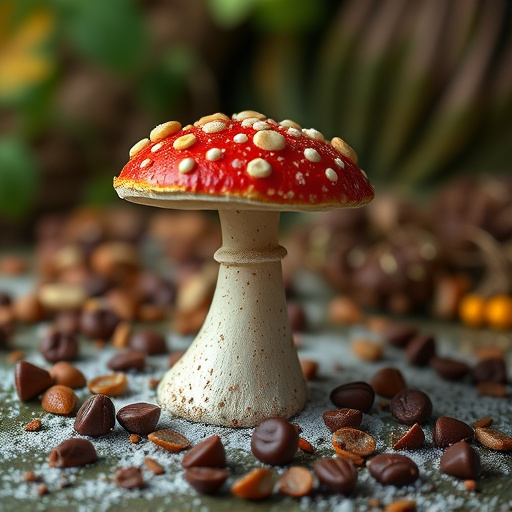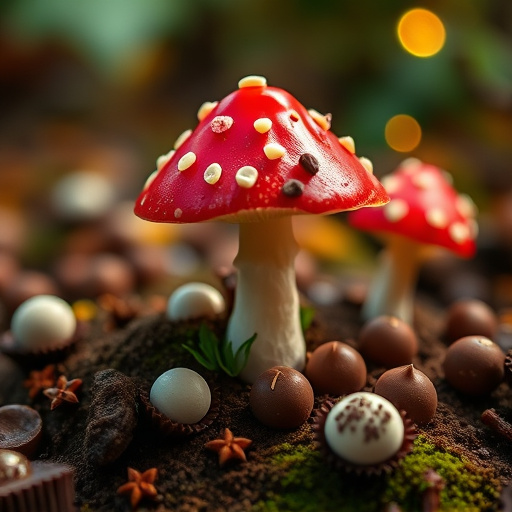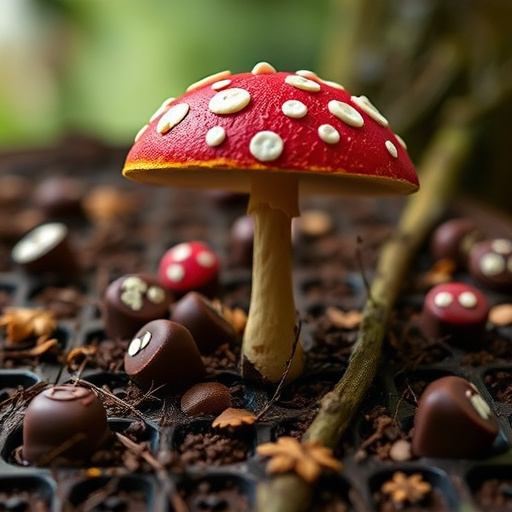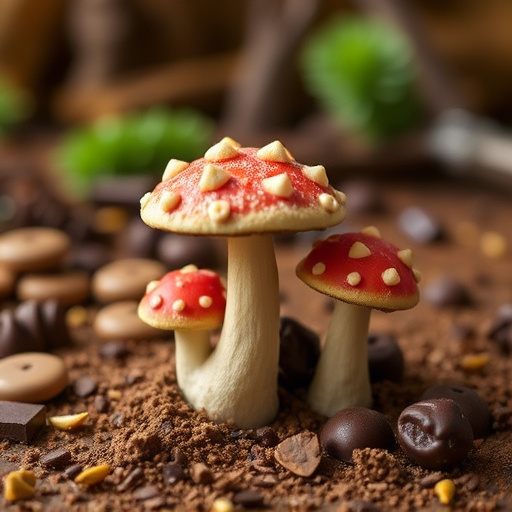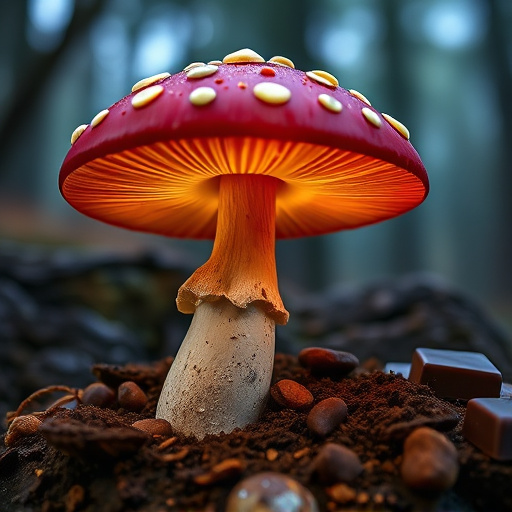Magic mushroom chocolates, enriched with psilocybin, interact with dopamine receptors in the brain, leading to potential therapeutic benefits such as elevated mood, heightened senses, and altered thinking patterns. This interaction stems from psilocybin's stimulation of dopamine release, a neurotransmitter associated with pleasure and reward. As magic mushroom chocolates gain popularity, understanding their impact on dopamine levels is crucial for consumers to balance risks and rewards, given the variability in individual experiences and ongoing research into these substances' complexities.
Discover the enchanting world of Magic Mushroom Chocolates and their unique ability to boost dopamine levels naturally. This innovative treat combines the therapeutic potential of psilocybin mushrooms with the indulgence of gourmet chocolate, offering a new way to explore enhanced well-being. In this article, we’ll guide you through the fascinating intersection of these two realms, equipping you with insights on how to find discounts and coupons while maximizing the benefits of your magical treats.
- Understanding Magic Mushroom Chocolates and Their Effect on Dopamine
- – What are magic mushroom chocolates?
- – How do they interact with dopamine levels in the brain?
Understanding Magic Mushroom Chocolates and Their Effect on Dopamine
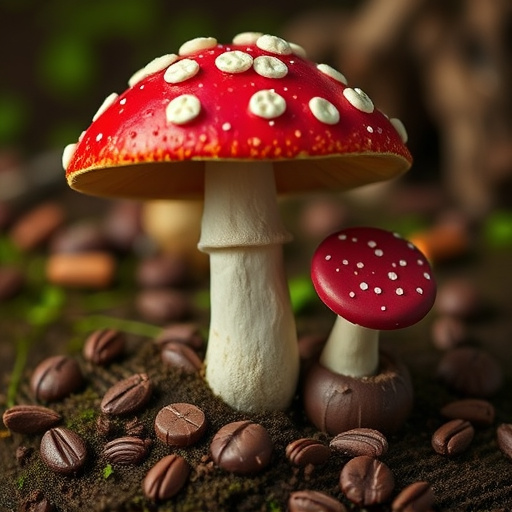
Magic mushroom chocolates, a unique blend of psychedelic compounds derived from mushrooms and enveloped in delicious chocolate, have gained interest for their potential effects on brain chemistry. While often associated with recreational use, these chocolates offer a more nuanced experience when consumed responsibly. The primary compound of interest here is psilocybin, which is known to interact with dopamine receptors in the brain. Dopamine, a neurotransmitter linked to pleasure and reward, plays a crucial role in motivation and cognition.
When magic mushroom chocolates are ingested, psilocybin is metabolized into psilocin, which binds to dopamine receptors, enhancing their activity. This interaction can lead to increased feelings of euphoria, heightened sensory perception, and altered thought patterns. Research suggests that this manipulation of dopamine levels may have therapeutic benefits, including potential applications in treating depression, anxiety, and addiction. By understanding the connection between magic mushroom chocolates and dopamine, consumers can appreciate both the potential risks and rewards associated with this emerging trend.
– What are magic mushroom chocolates?
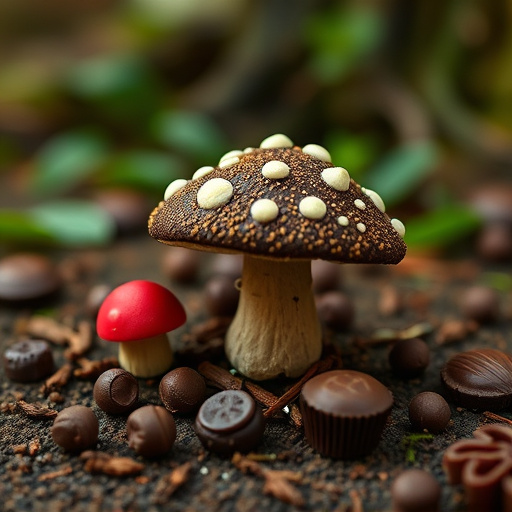
Magic mushroom chocolates, also known as infused chocolates, are a delightful treat that combines the art of chocolatiering with the therapeutic benefits of psilocybin mushrooms. These chocolates are crafted by infusing premium dark chocolate with extracts or powders derived from psychedelic mushrooms, offering a unique culinary experience. Beyond their exotic appeal, magic mushroom chocolates have gained attention for their potential impact on dopamine levels in the brain. Dopamine is a neurotransmitter associated with pleasure and reward, and its regulation plays a crucial role in mood, motivation, and cognitive functions. Some studies suggest that psilocybin mushrooms can stimulate dopamine release, leading to heightened sensory perception and an enhanced sense of well-being. This effect, combined with the indulgent nature of chocolates, has made magic mushroom chocolates a popular choice for those seeking both a delectable treat and potential mood elevation.
– How do they interact with dopamine levels in the brain?
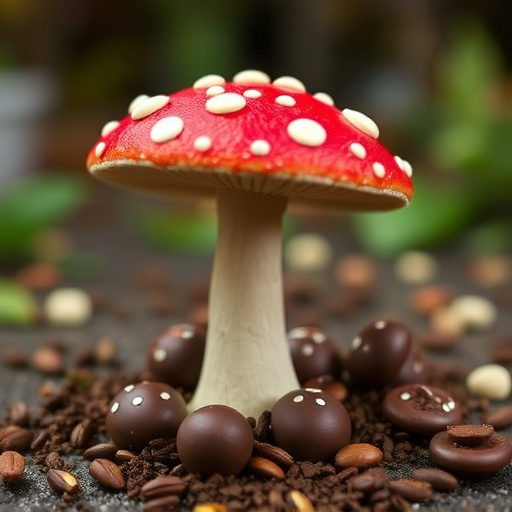
Magic mushroom chocolates, while offering a unique sensory experience, interact with dopamine levels in the brain in fascinating ways. Dopamine is a neurotransmitter associated with pleasure and reward, playing a key role in motivation and reinforcement of behaviors. When consumed, these chocolates contain psilocybin, the active compound found in magic mushrooms, which has been shown to increase dopamine activity in certain brain regions. This can lead to heightened feelings of euphoria, increased creativity, and altered perceptions—effects often associated with a “magic mushroom” experience.
The interaction between magic mushroom chocolates and dopamine levels is complex. Psilocybin stimulates the release of dopamine, enhancing its availability in the brain’s reward system. This stimulation can result in a boost in mood and cognitive function, as well as a deeper connection to one’s emotions and senses. However, it’s important to note that the effects of psilocybin are still being studied, and individual experiences may vary greatly. Always prioritize safety and responsible consumption when exploring these substances.
Magic mushroom chocolates, despite their intriguing concept, offer a unique way to experience heightened sensory perception. By harnessing the power of psilocybin found in magic mushrooms, these chocolates interact with dopamine levels in the brain, potentially leading to enhanced mood and creativity. While discounts and coupons can make these products more accessible, it’s essential to approach them mindfully and responsibly, ensuring they are used in a controlled environment under professional supervision whenever necessary.
